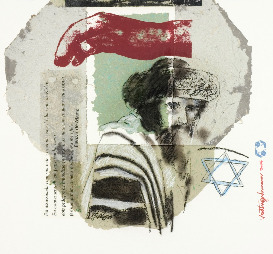Ironic Intertextuality in Jn 3:7-4:2
DOI:
https://doi.org/10.17851/1982-3053.12.23.160-177Keywords:
Intertextuality, Narrative, IronyAbstract
This article aims to examine some literary aspects in the book of Jonah, as well to verify intertextual relations between the text of Jn 3: 7-4:2 and Ex 32-34, analyzing the ironic aspects present in the connections among these two narratives, mainly, in the connection between the prophets Jonah and Moses, where it stands out the ironic form that the author presents Jonah’s actions.
Downloads
References
ALLEN, Leslie C. The Books of Joel, Obadiah, Jonah and Micah: New International Commentary on The Old Testament. Grand Rapids: Willian B. Eerdmans Publishing Company, 1976.
ALTER, Robert; KERMODE, Frank (Ed.). Guia literário da Bíblia. Trad. Raul Fiker. São Paulo: Editora Unesp, 1997.
ALTER, Robert. KERMODE, Frank (Ed.). The World of biblical literature. United States: Basic Books , 1992.
AMIT, Yairah. Reading Biblical Narratives: literary criticism and the Hebrew Bible. Minneapolis: Fortress Press, 2001.
BARKER, Glenn W.; WATTS, John D. W. Word biblical commentary: Hosea-Jonah. Waco: Word Books, 1987.
BANKS, William L. Jonah: the reluctant prophet. Chicago: Moody Bible Institute of Chicago, 1966.
BICKERMAN, Elias J. The Two Mistakes of the Prophet Jonah. In: TROPPER Amram D. (Ed.). Studies in Jewish and Christian History. Ancient Judaism and Early Christianity. v. 1. Leiden: Brill, 2007. p. 23-70.
BODA, M. J; MCCONVILLE, J. G. Dictionary of the Old Testament: Prophets. Illinois: InterVasity Press, 2012.
CHISHOLM JR., Robert B. Handbook on the Prophets: Isaiah, Jeremiah, Lamentations, Ezekiel, Daniel, Minor prophets. Grand Rapids: Baker Academic 2002.
CHISHOLM JR., Robert B. Interpreting the minor prophets. Grand Rapids: Zondervan Publishing House, 1990.
DAVIDSON, Benjamim. The Analytical Hebrew and Chaldee Lexicon: Every Word And Inflection of the Hebrew Old Testament Arranged Alphabetically and With Grammatical Analyses. Massachusetts: Hendrickson, 2014.
DOZEMAN, Thomas B. Inner-Biblical Interpretation of Yahweh’s Gracious and Compassionate Character. Journal of Biblical Literature, v. 108, n. 2, p. 207-223, 1989.
ELLUL, Jacques. The Judgment of Jonah. Grand Rapids: William B. Eerdmans Publishing Company, 1971.
GOOD, Edwin M. Irony in the Old Testament. Sheffield: The Almond Press, 1981.
HARRISON, R. K.; ALLEN, Leslie C. The books of Joel, Obadiah, Jonah and Micah. Grand Rapids: William B. Eerdmans Publishing Company, 1987.
HOLBERT, John C. Deliverance Belongs to Yahweh!: Satire in the Book of Jonah. Journal of the Study Old Testament, v. 6, n. 21, p. 59-81, Out. 1981.
KIM, H. C. P. Jonah Read Intertextually. Journal of Biblical Literature, v. 126, n. 3 p. 497-528, Fall, 2007.
KLEIN, Lilian R. The Triumph of Irony in the Book of Judges. Journal for the Study of the Old Testament Supplement Series, v. 68; Bible and Literature Series, v. 14. Sheffield: Sheffield Academic Press, 1989.
KOCH, J. G. V; BENTES, A. C; CAVALCANTE, M. M. Intertextualidade: diálogos possíveis. São Paulo: Cortez, 2012.
LANDES, G. M. The Kerygma of the book of Jonah: The Contextual Interpretation of the Jonah Psalm. Interpretation, v. 21, n. 1, p. 3-31, Jan. 1967.
LIMBURG, James. Jonah: A Commentary. The Old Testament Library. Louisville: Westminster John Knox Press, 1993.
NOGALSKI, James D. Redactional Processes in the Book of the Twelve. Beihefte zur Zeitschrift für die alttestamentliche Wissenschaft, v. 218; Berlin and New York: Walter de Gruyter, 1993.
MILES, J.A. Laughing at the Bible: Jonah as Parody. The Jewish Quarterly Review, New Series, v. 65, n. 3, p. 168-181, Jan. 1975.
PAGE, Frank; SMITH, Billy K. Amos, Obadiah, Jonah: An Exegetical and Theological Exposition of Holy Scripture, v. 19, New American Commentary. United States: B&H Publishing Group, 1995.
SASSON, J. M. Anchor Bible 24B: Jonah: A new translation with introduction, commentary, and interpretation. London: Yale University Press, 2008. p. 7–29.
SHARP, Carolyn, H. Irony and Meaning in the Hebrew Bible. Bloomington: Indiana University Press, 2009.
SIMON, Uriel. The JPS Bible Commentary: Jonah. Philadelphia: Jewish Publication Society, 1999.
STERNBERG, Meir. The Poetics of Biblical Narrative: ideological literatures and the drama of reading. Bloomington: Indiana University Press, 2009.
STUART, Douglas; HUBBARD, David Allan. Word biblical commentary: Hosea-Jonah. Waco: Word Books, 1987.
SWEENEY, M. A. The Twelve Prophets: Hosea, Joel, Amos, Obadiah, Jonah. Berit Olam series (v. 1). Collegeville, MN: The Liturgical Press, 2000.
TRIBLE, P. Rethorical Criticism: Context, Method and the Book of Jonah. Guides to Biblical Scholarship. Minneapolis: Fortress, 1994.
WEST, Mona. Irony in the book of Jonah: Audience identification with hero, Perspectives in Religious Studies, v. 11, n. 3, p. 233-242, Fall, 1984.
WOLFF, H. Walter. Obadiah and Jonah. Minneapolis: Augsburg Publishing House, 1986.
Downloads
Published
How to Cite
Issue
Section
License
Os direitos autorais pertencem exclusivamente aos autores. Os direitos de licenciamento utilizados pelo periódico é a licença Creative Commons Attribution 4.0 (CC BY 4.0): são permitidos o compartilhamento (cópia e distribuição do material em qualquer meio ou formato) e adaptação (remix, transformação e criação de material a partir do conteúdo assim licenciado para quaisquer fins, inclusive comerciais.






